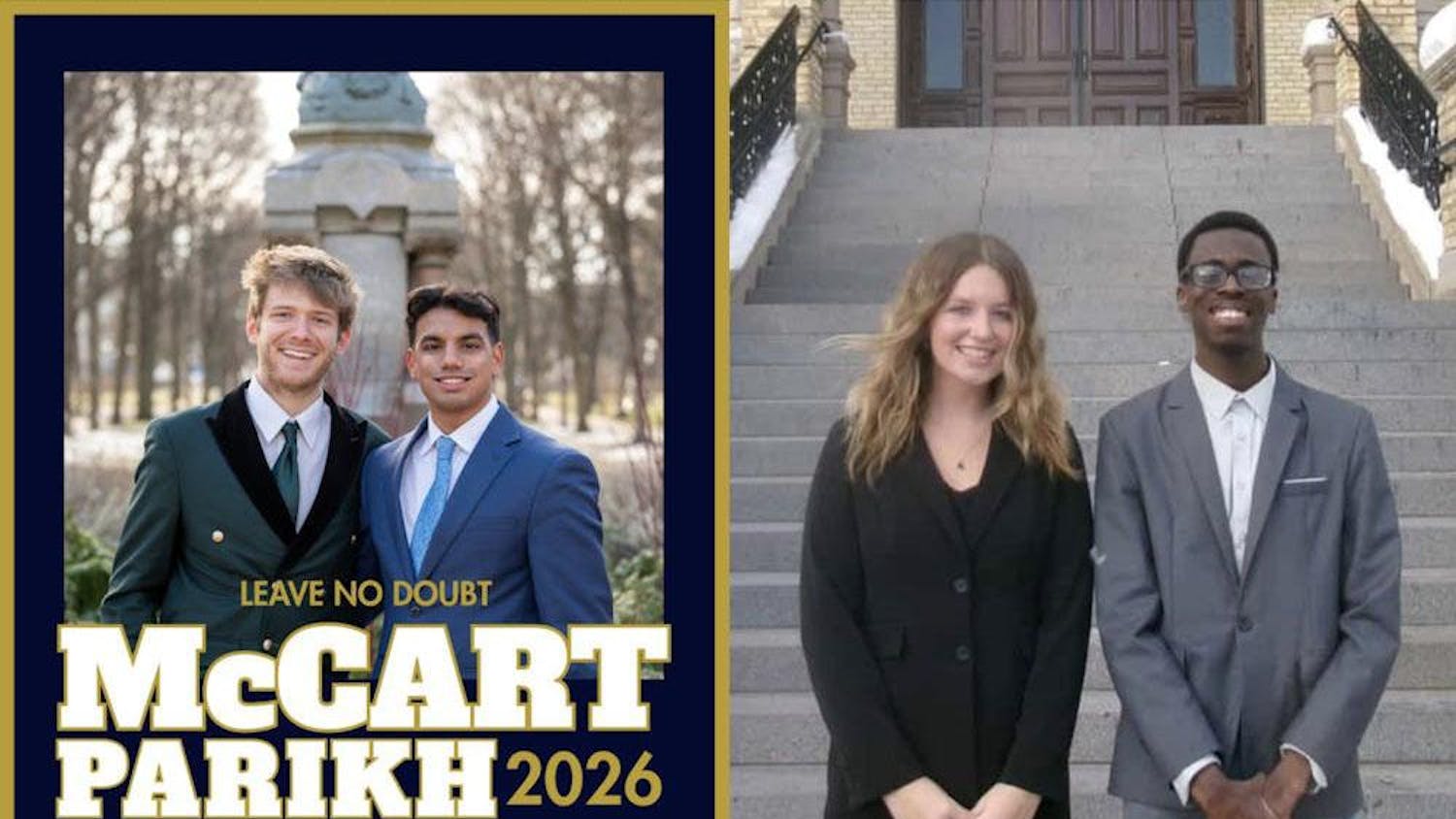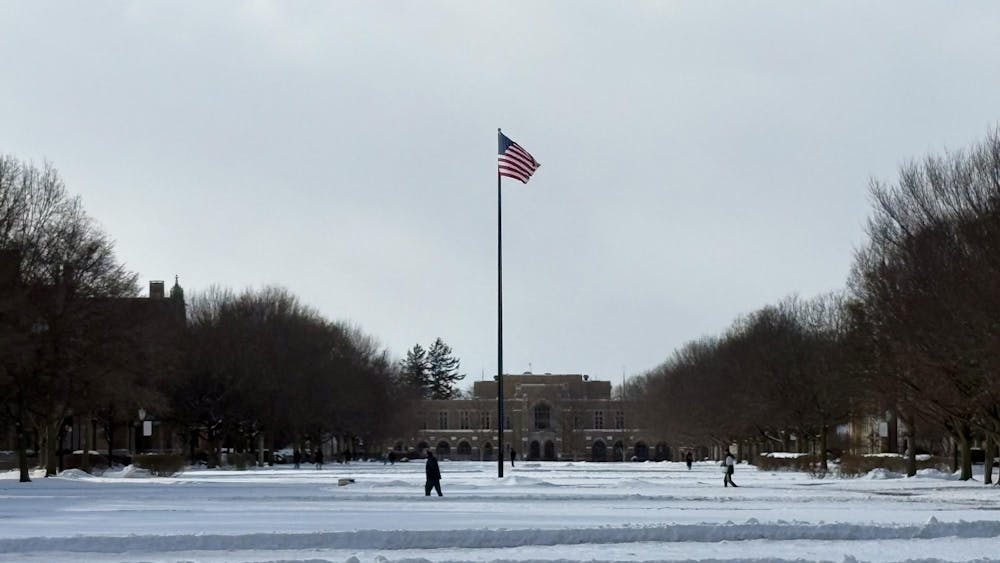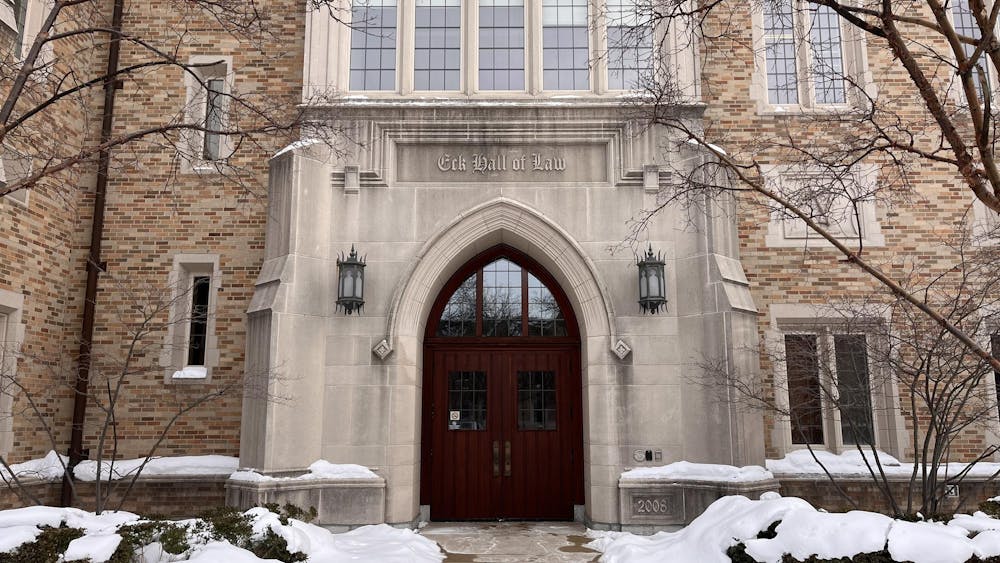On Wednesday, the Center for Social Concerns hosted a special edition of their Labor Cafe called “Hollywood on Strike: Actors, Writers, Tech and the Future of Entertainment.” Alumni Liz Hynes ‘17 and Eric Ways ‘18, both in the entertainment industry, spoke at the event.
Hynes is a writer for “Last Week Tonight with John Oliver” and member of the Writers Guild of America, whose recent strike lasted from the beginning of May to late September.
Ways is an actor and member of the Screen Actors Guild, which is currently in the midst of negotiations with the Alliance of Motion Picture and Television Producers to resolve a strike lasting since mid-July.
The panel also included Daniel Graff, history professor and director of the Higgins Labor Program at the Center for Social Concerns, as well as Megan Levis, an assistant professor of the practice at the Center for Social Concerns and the College of Engineering. It was moderated by Pam Wojcik, department chair and Andrew V. Tackes professor of Film, Television and Theatre.
Hynes, who is a council member for the Writers Guild of America and was one of their strike captains, spoke on the impact of new forms of technology, such as streaming and artificial intelligence, on the entertainment industry.
She explained the recent reduction in creative labor, the struggles writers have faced from smaller writers’ rooms and how writers have shorter terms of employment. In order to be on the union’s preferable health insurance plan, writers must work at least 13 weeks a year, which many were struggling to meet.
Hynes noted that the recent movement had been a long time coming. The technological change that accompanied the advent of streaming spurred companies to try and reduce labor costs in ways that negatively impacted workers. This reached a peak with a near-strike in 2017, but it was averted with a last-minute deal.
For actors, Ways explained their wages didn’t rise despite streaming services increasing the number of shows being produced, resulting in greater profits for the companies.
Individuals also didn’t earn residuals for their shows on streaming services, and increased auditions without pay forced them to take more time away from other jobs.
In addition to these issues, the Screen Actors Guild strike seeks to augment the number of background actors on sets, ensure AI protection for its members and reduce the amount of working time required for insurance.
Ways spoke to the actors’ resilience when facing resistance from the studios, who believed the actors wouldn’t have the funds to maintain the strike.
“Artists have always struggled,” he said. “We’ve always been able to have side gigs … and we’ve always had that grind mentality.”
Levis spoke to the ways artificial intelligence has influenced the recent labor conflicts.
“AI is kind of introducing a new creative medium to this film and technology space,” she said.
She explained that generative AI is developed using large quantities of data, which requires significant labor to produce. This means it can affect writers in two ways, both in the use of writers’ work to enhance new AI functions and in its potential to replace writers in the industry.
For actors, the advancement of AI art revives old questions about the rights actors have to their likeness, as new programs can produce what is essentially their image from a photo of the individual, she said.
Nevertheless, she pointed out that technology doesn’t necessarily cause new issues, but simply alters the way people interact with each other in ways that are recognizable.
Graff explained the difference between the industrial union model and the craft model. The union model joins all workers for one company, regardless of their particular role, and the craft model, as seen in Hollywood, unites people of a certain profession.
He said that in the craft model, the union helps members get benefits and find work, and that there’s usually a greater sense of a “brother or sisterhood” among the individuals. However, he also pointed out how it might make it difficult to “build solidarity” with people in other fields and not just prioritize one’s own industry.
Despite the recent challenges, Ways said he feels optimistic that newcomers to entertainment will be more secure, and there will be a “precedent” for future negotiations.
While they haven’t yet accomplished everything they want to, Hynes agreed.
“The building blocks are there now, and if every contract builds off the last one, we’ll get where we need to be,” Hynes said.
She also commented on the power of strikes to instruct people and inspire other labor movements.
Dr. Graff added that the new generation has an eagaerness and appetite for change as they try to fix current issues. He spoke to the diversity of the modern labor movement, saying it’s “committed to a much more inclusive and equitable economy,” which gives him hope for the future. 
Alumni speak on recent Hollywood strikes at special Labor Cafe
The Center for Social Concerns organized a panel of both alumni and center faculty for the Labor Cafe's session on the different strikes in Hollywood.









